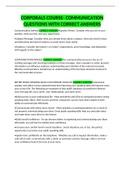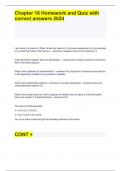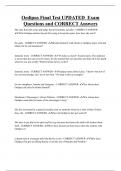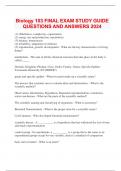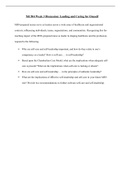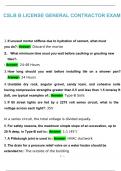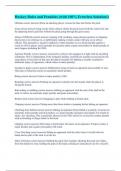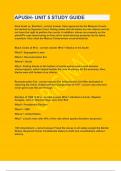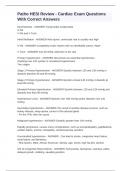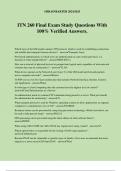Exam (elaborations)
CORPORALS COURSE- COMMUNICATION QUESTIONS WITH CORRECT ANSWERS
- Course
- Institution
Communication Defined CORRECT ANSWER •Speaker/Writer: Consider who you are or your position, what you feel, and your experiences. •Subject/Message: Consider what you already know about a subject, what you need to know, and determine the kind of evidence or proof that is most useful. •Audi...
[Show more]
